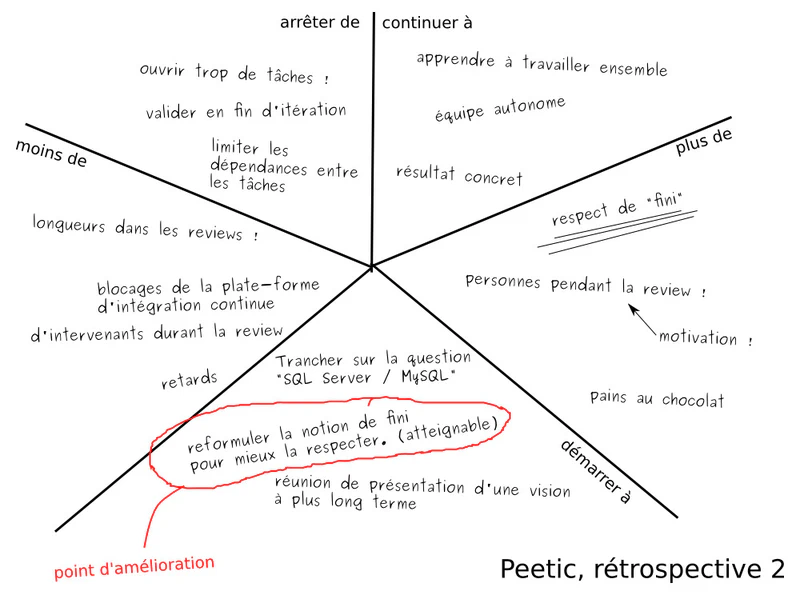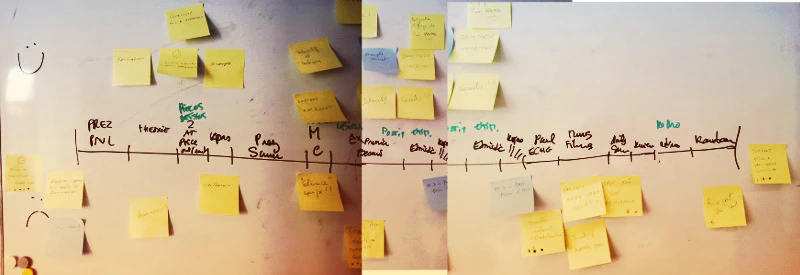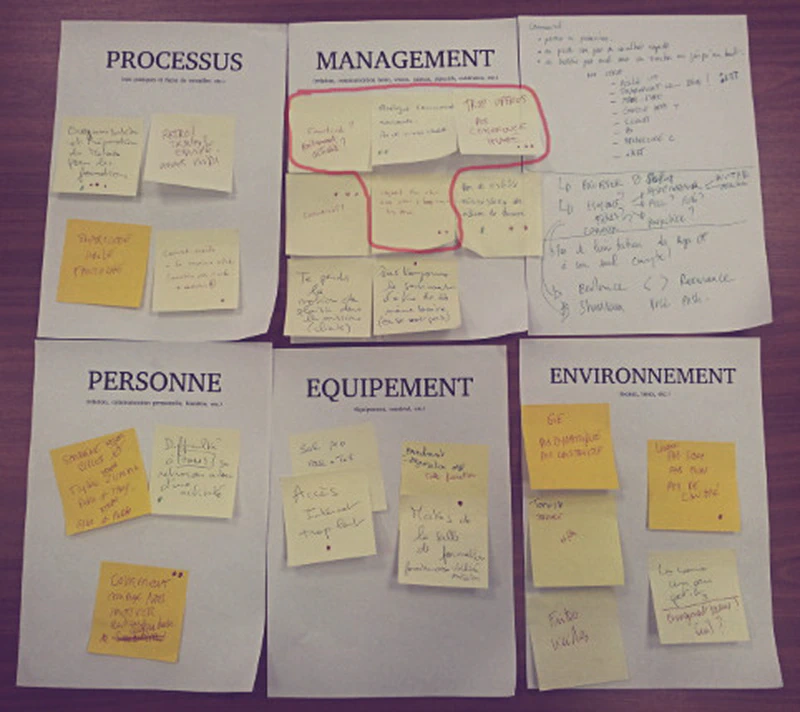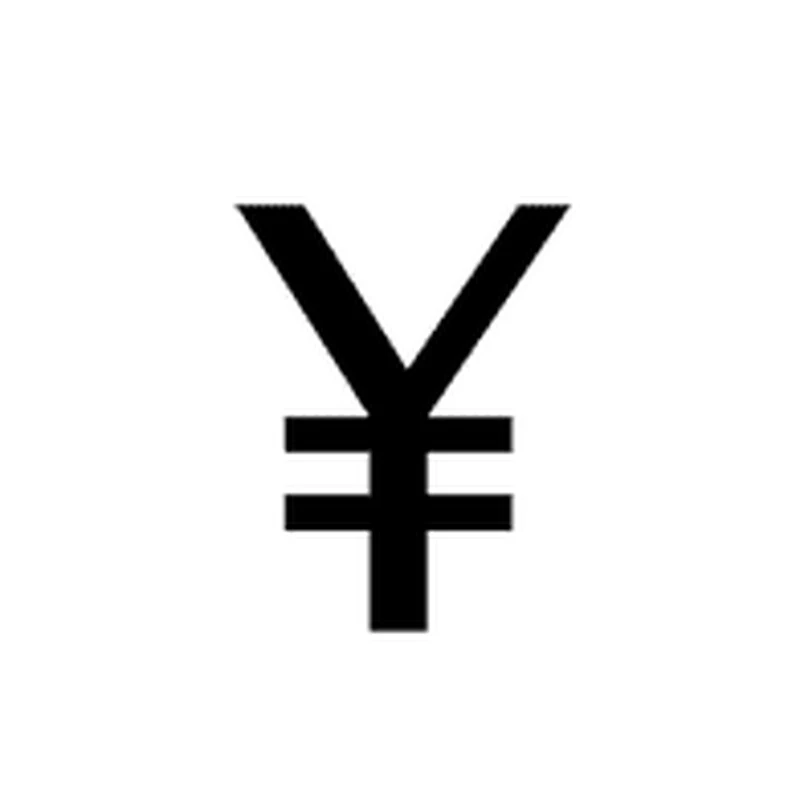I was able to try last Monday with SmartView a new format, or rather a new retrospective theme. The retrospective is an essential element of agile thinking, it is the tool for continuous improvement. However, the retrospective is a moment that can quickly become tiresome, due to a repetitive format, and the involvement that this event requires. It is therefore necessary very regularly to change retrospective formats, even slightly, in order to avoid this wear. But also with the aim of bringing new things to emerge that couldn’t be expressed in previous formats, allowing different thinking.
Otherwise another article on retrospectives: retrospective festival. And also this one: 2 new retrospective formats
Retrospectives
The reference book for retrospectives is agile retrospectives by Esther Derby. This cookbook is packed with good ideas, I recommend it, whether for project retros, departments, organizations, releases, etc.
In my practice I try to regularly alternate formats, some examples at Peetic: the classic (pdf), or the starfish below (click to enlarge). You also have the famous “speedboat” (but which I use very little).

Or otherwise the timeline with dot voting:

Changing framework, to think differently
It is advisable to change framework to try to think differently. I therefore recently wondered about some new frameworks to propose to teams (and which I could test at SmartView).
Ishikawa

Telling myself that the retrospective was the place for problem solving, I naturally thought of Ishikawa (which I use from time to time when I’m asked for certain types of audits). Ishikawa is a cause and effect diagram. By adapting this diagram a bit I proposed a reflection on 5 themes (in the manner of the “starfish” or the “classic” format).
Here are the 5 themes below:
- PEOPLE: relationship, personal communication, well-being, etc.
- PROCESS: our practices and way of working, etc.
- EQUIPMENT: equipment, hardware, etc.
- MANAGEMENT: relationship, company communication, vision, values, objectives, coherence, etc.
- ENVIRONMENT: (premises, places, etc.

The result was conclusive, so I will try it with the other teams.
Gishydo

Another thing that made me laugh, and interested me on the web: Gyshido (“The Art of Getting Your Shit Done” or “the art of managing to get out of the shit we’re stuck in”), found via a Basque idea provider: Bruno Bord @brunobord (see the link to his blog in the footer).
Through a zen philosophy approach, the amigos of Gyshido nevertheless deal with important subjects. Why not use them in retrospectives?
Here are the key questions of a Gyshido retrospective as I imagine them:
- What useless activities did we nevertheless carry out?
- What was annoying to accomplish?
- What turned out to be unclear, untrue?
- What meetings were useless?
- Who did you help?
- When did you behave badly?
Sharp questions that could bring new answers, however be careful to handle with delicacy.
This article had a follow-up in 2015: retrospective festival
And in 2016: 2 new retrospective formats